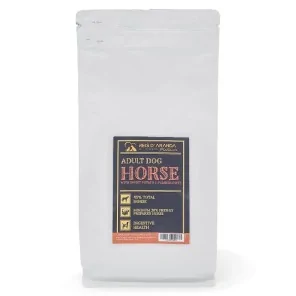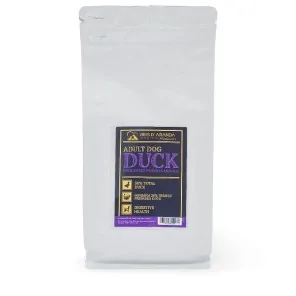Its name says it all: the Vienna blue rabbit comes from Austria. Not only is it beautiful with its shiny blue-grey...
ALLERGIES IN DOGS
ALLERGIES IN DOGS
Allergies in dogs are a common condition that affects many pets. Like humans, dogs can also suffer from allergies to a variety of different substances. These allergies can be caused by food, insect bites, pollen, dust mites and other environmental allergens.
Symptoms of allergies in dogs can vary and include itchy skin, redness, scaling, foul-smelling ears, sneezing, coughing and gastrointestinal problems. In severe cases, allergies can cause inflammation and general discomfort in the dog.
It is important to identify the cause of your dog's allergies in order to properly treat the condition. This may involve dietary changes, avoidance of certain allergens, treatment with medications such as antihistamines or even immunotherapy injections in severe cases.
MAIN CAUSES OF ALLERGY IN DOGS
Allergies in dogs can be caused by a variety of factors, including:
- FOOD ALLERGIES: Some dogs may be allergic to certain ingredients in their diet, such as chicken, beef or wheat.
- ENVIRONMENTAL ALLERGIES: Pollen, dust mites, mould and other allergens present in the environment can trigger allergic reactions in dogs.
- CONTACT ALLERGIES: Some dogs may be allergic to certain chemicals, such as shampoos, detergents or pesticides.
- INSECT BITE ALLERGIES: Fleas, ticks and mosquitoes can cause allergic reactions in some dogs.
ALLERGY SYMPTOMS IN DOGS
Allergy symptoms in dogs can vary, but some of the most common include:
- Intense itching of the skin
- Redness or swelling of the skin
- Loss of hair
- Sneezing and runny nose
- Vomiting or diarrhoea
- Recurrent ear infections
If your dog exhibits any of these symptoms, it is important to consult a veterinarian for a proper diagnosis.
ALLERGY TREATMENT FOR DOGS
Treatment for allergies in dogs will depend on the underlying cause of the allergy. Some common treatment options include:
- SPECIAL DIET: Changing your dog's diet to a hypoallergenic formula can help control food allergies. Some recommended feeds are grain free or "soft" meats such as duck or exotic meats such as horse meat, in Reis d'Aranda we can find these two varieties.
- MEDICATIONS: Antihistamines, steroids and other medicines can be prescribed by a vet to control allergy symptoms in dogs.
- IMMUNOTHERAPY INJECTION: In some cases, immunotherapy injections may be used to help reduce a dog's sensitivity to certain allergens.
In summary, allergies in dogs are a common condition that can cause discomfort to our pets. It is important to be aware of the symptoms and seek appropriate treatment to improve the quality of life of our furry friends. Always consult a veterinarian for proper diagnosis and treatment.
Leave a comment
Log in to post comments
















